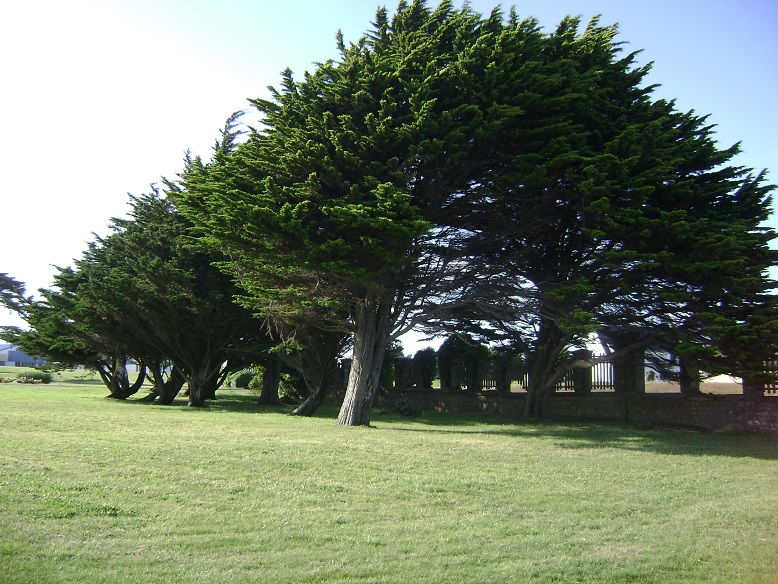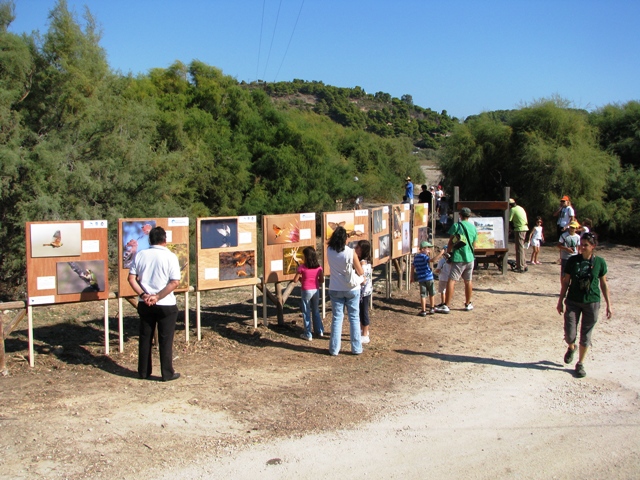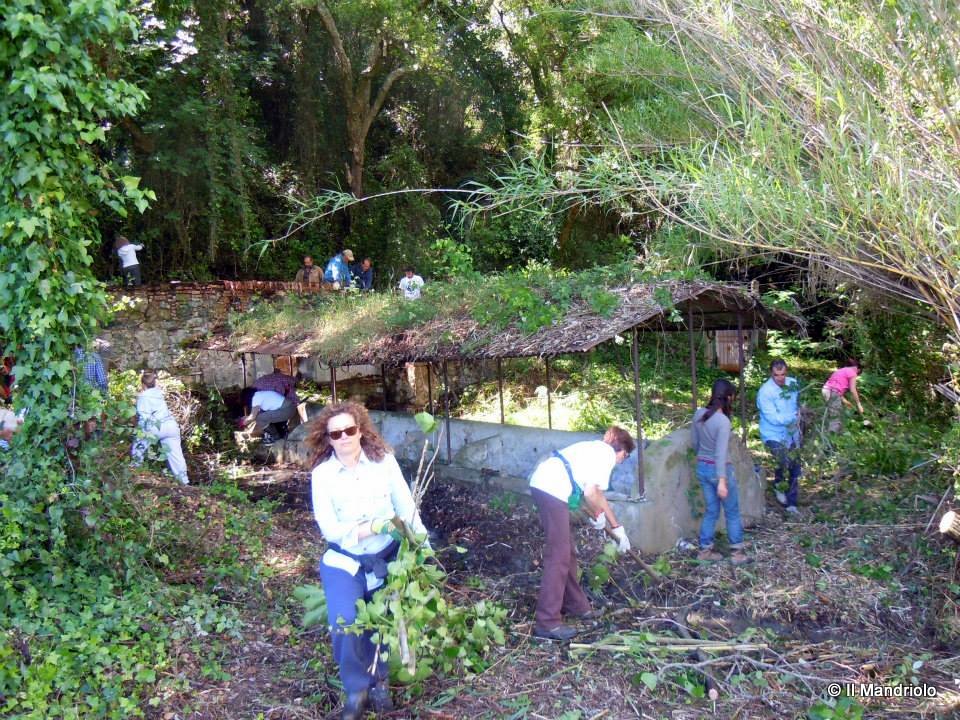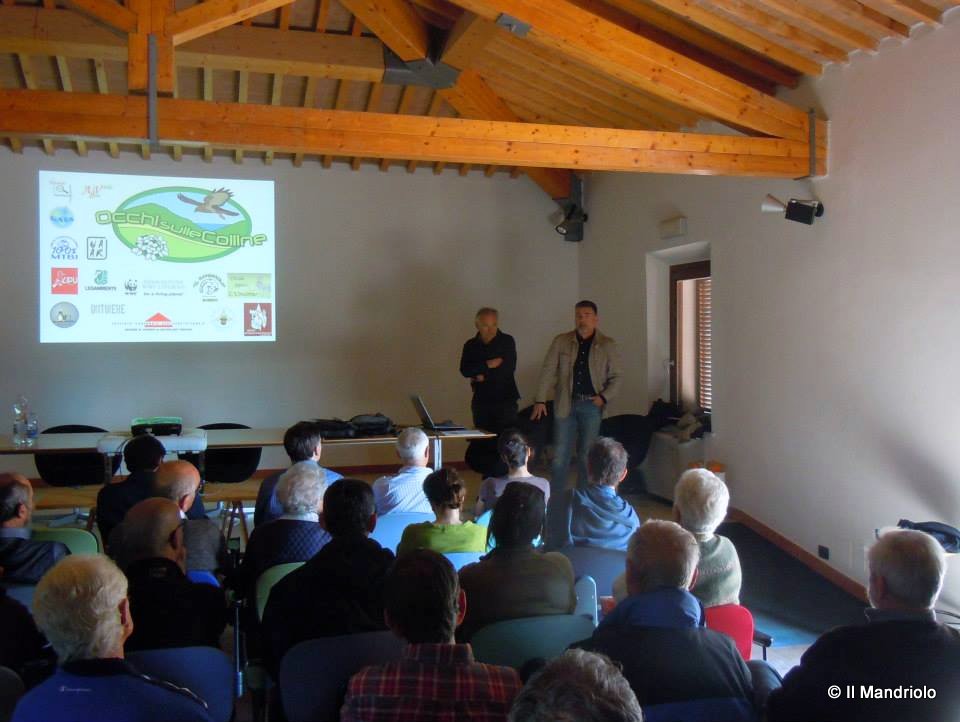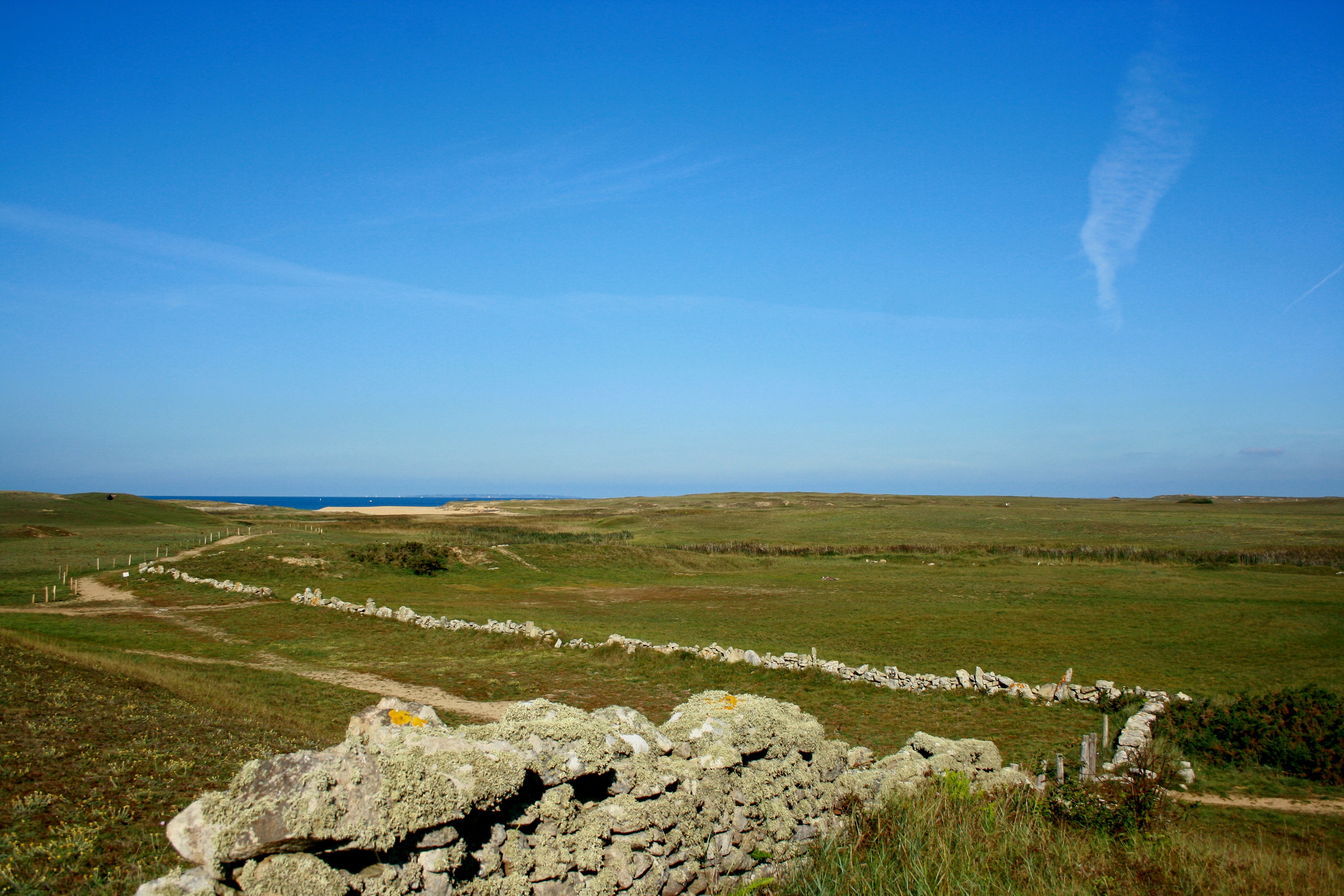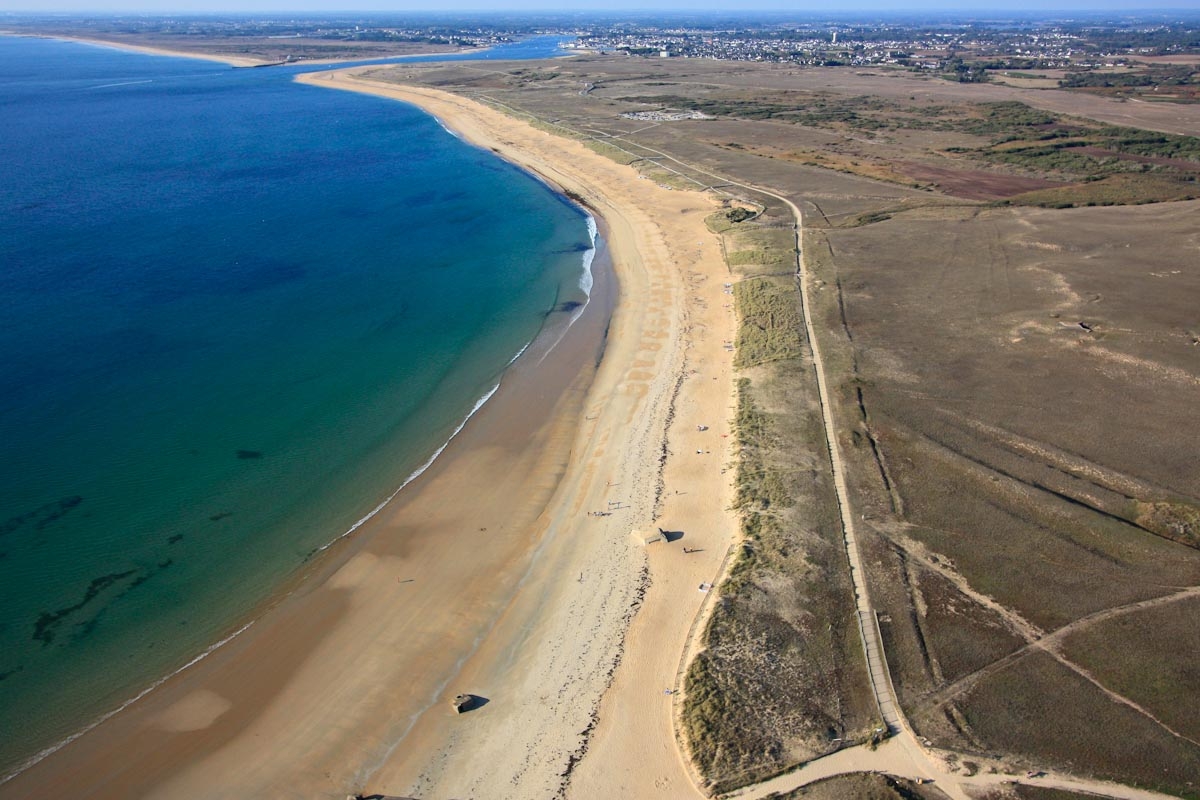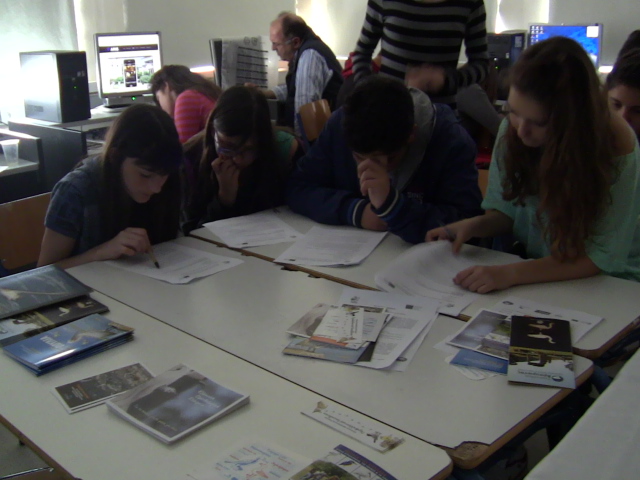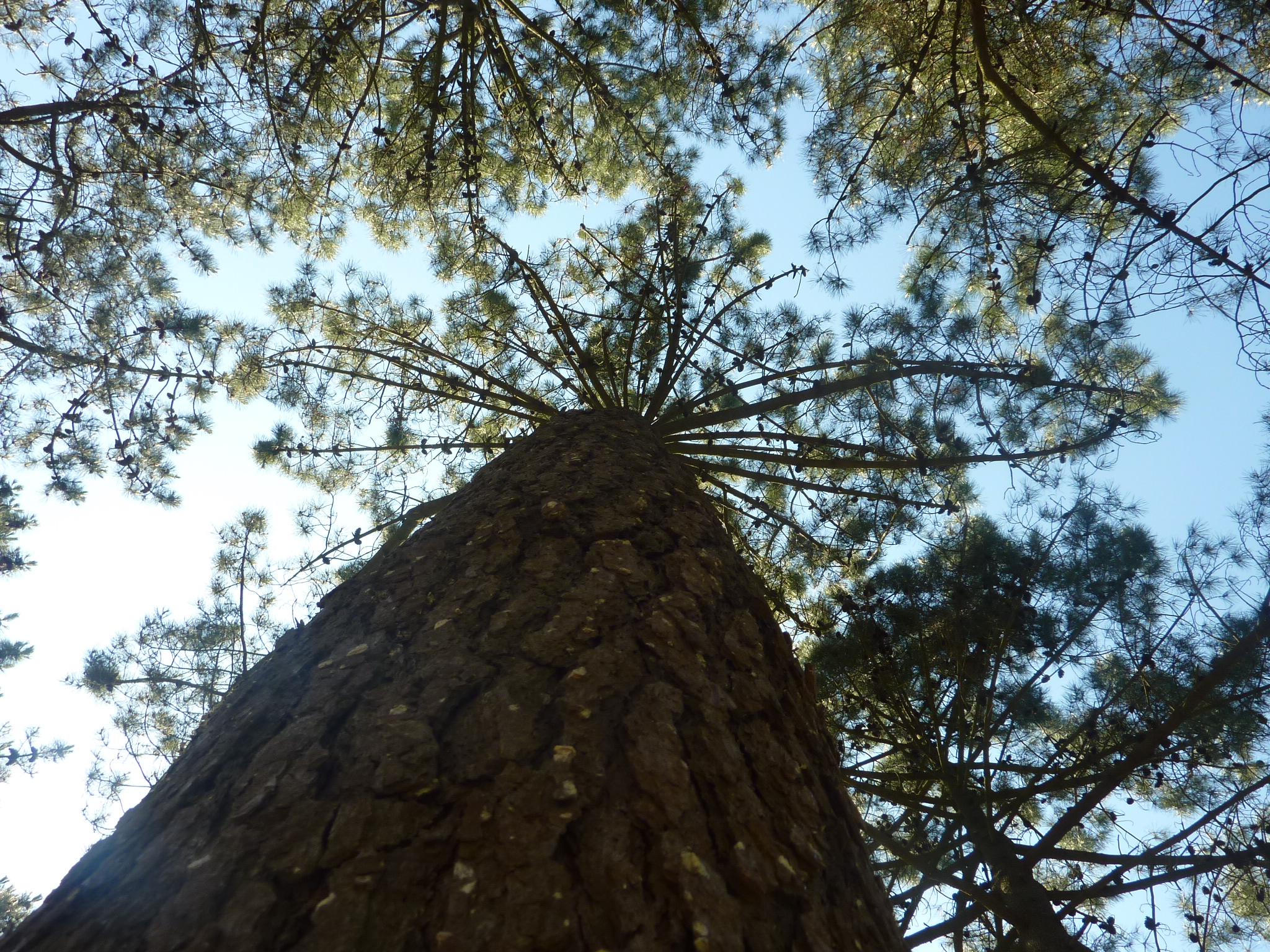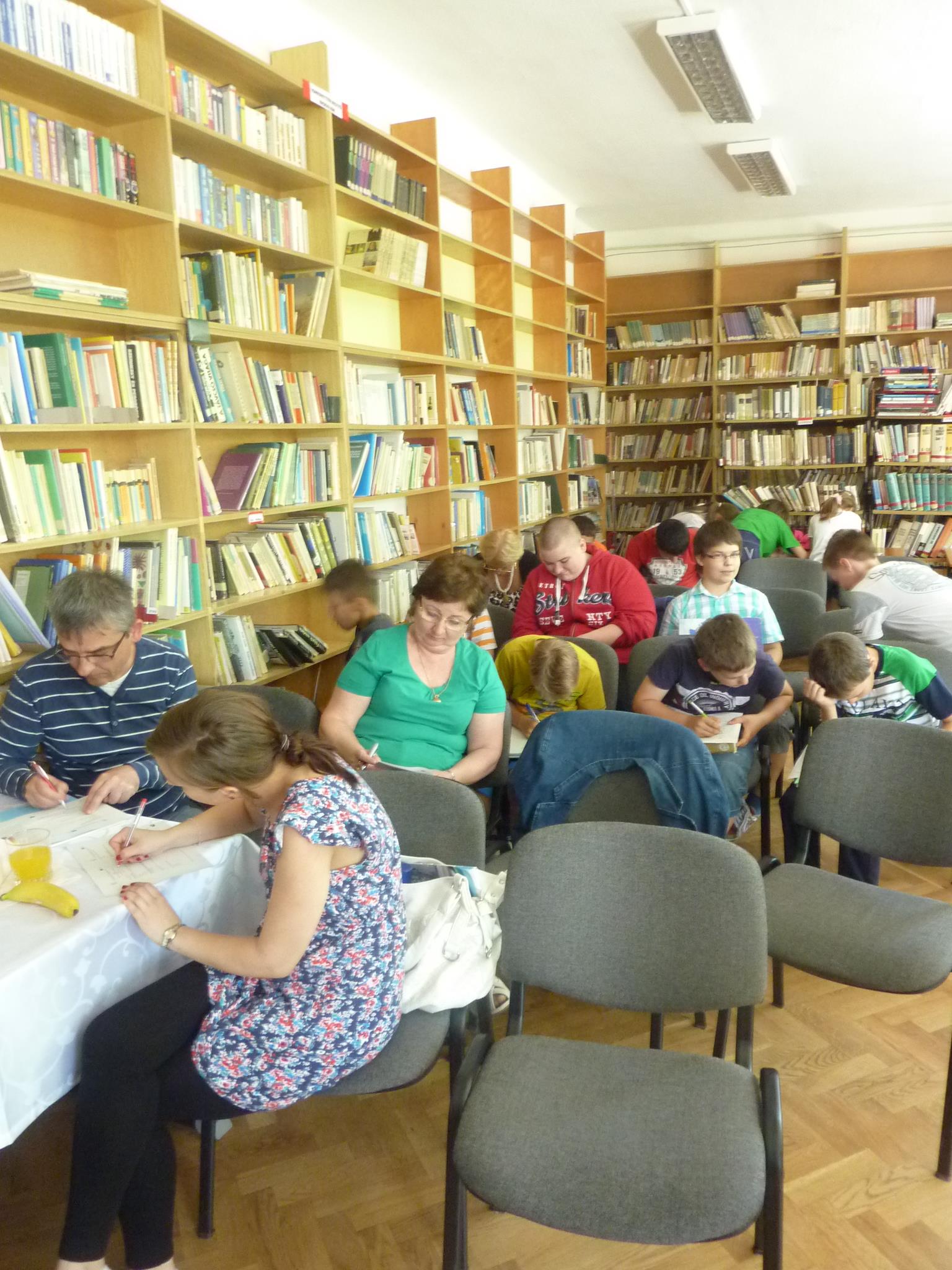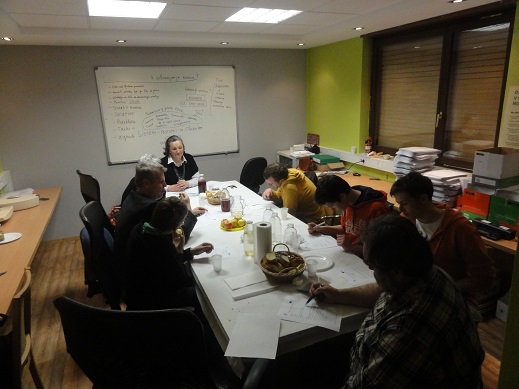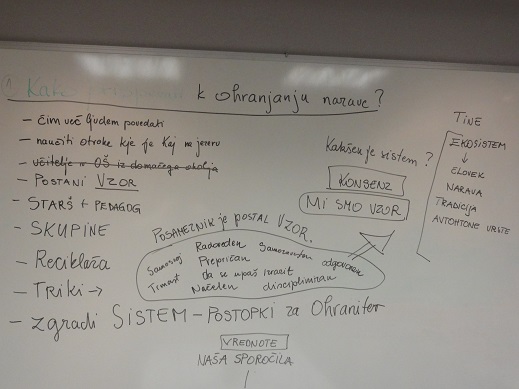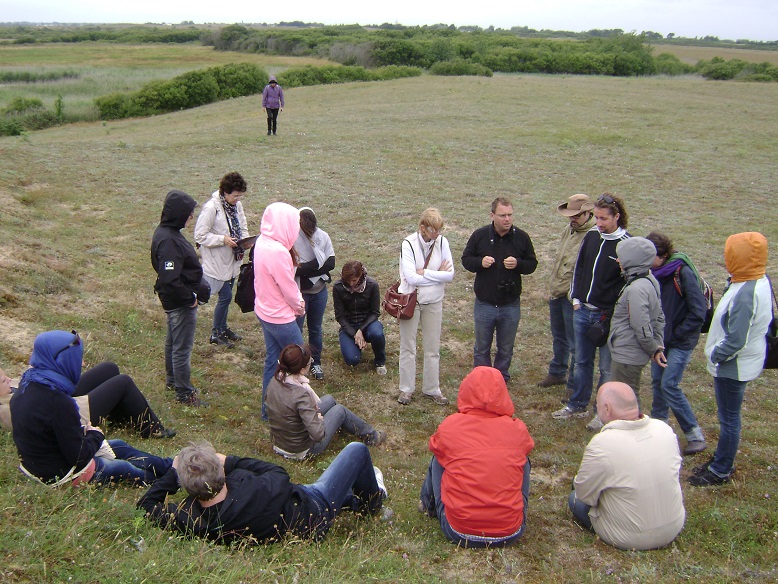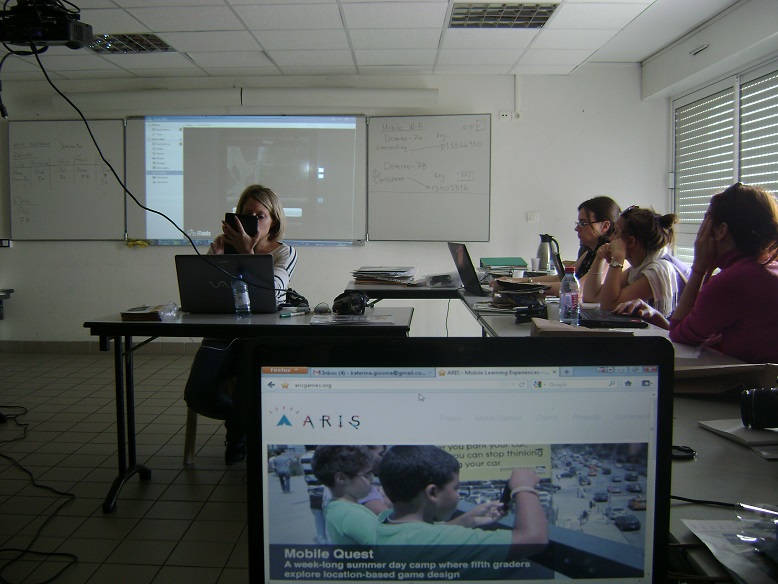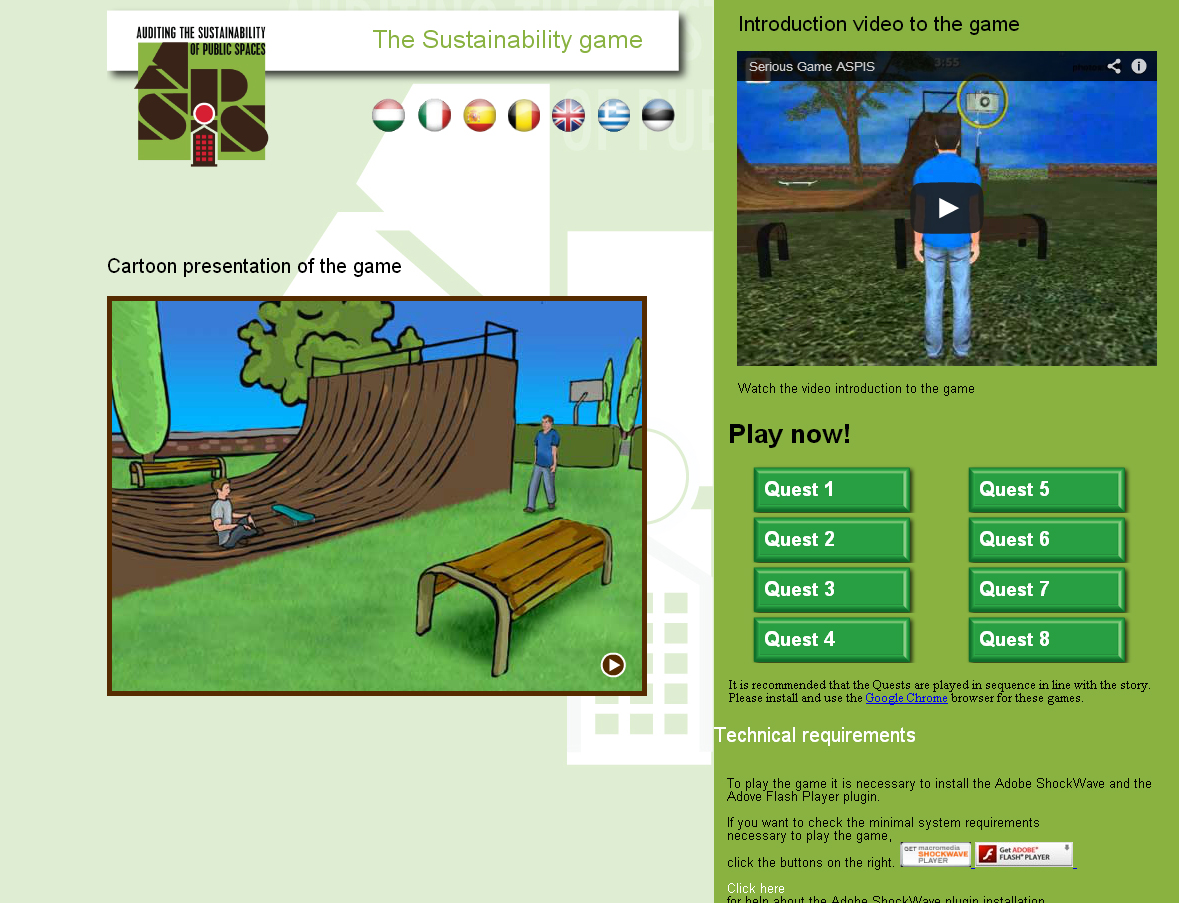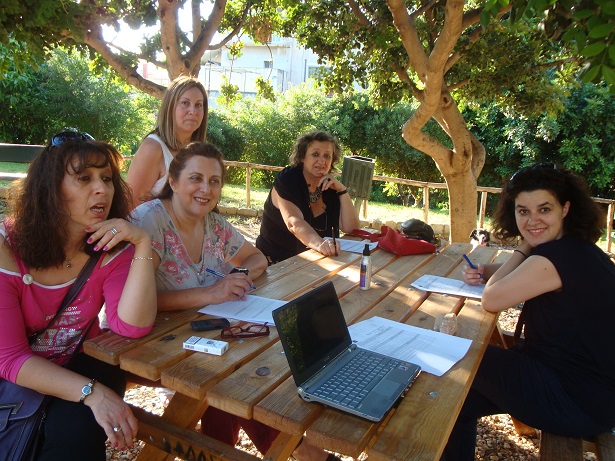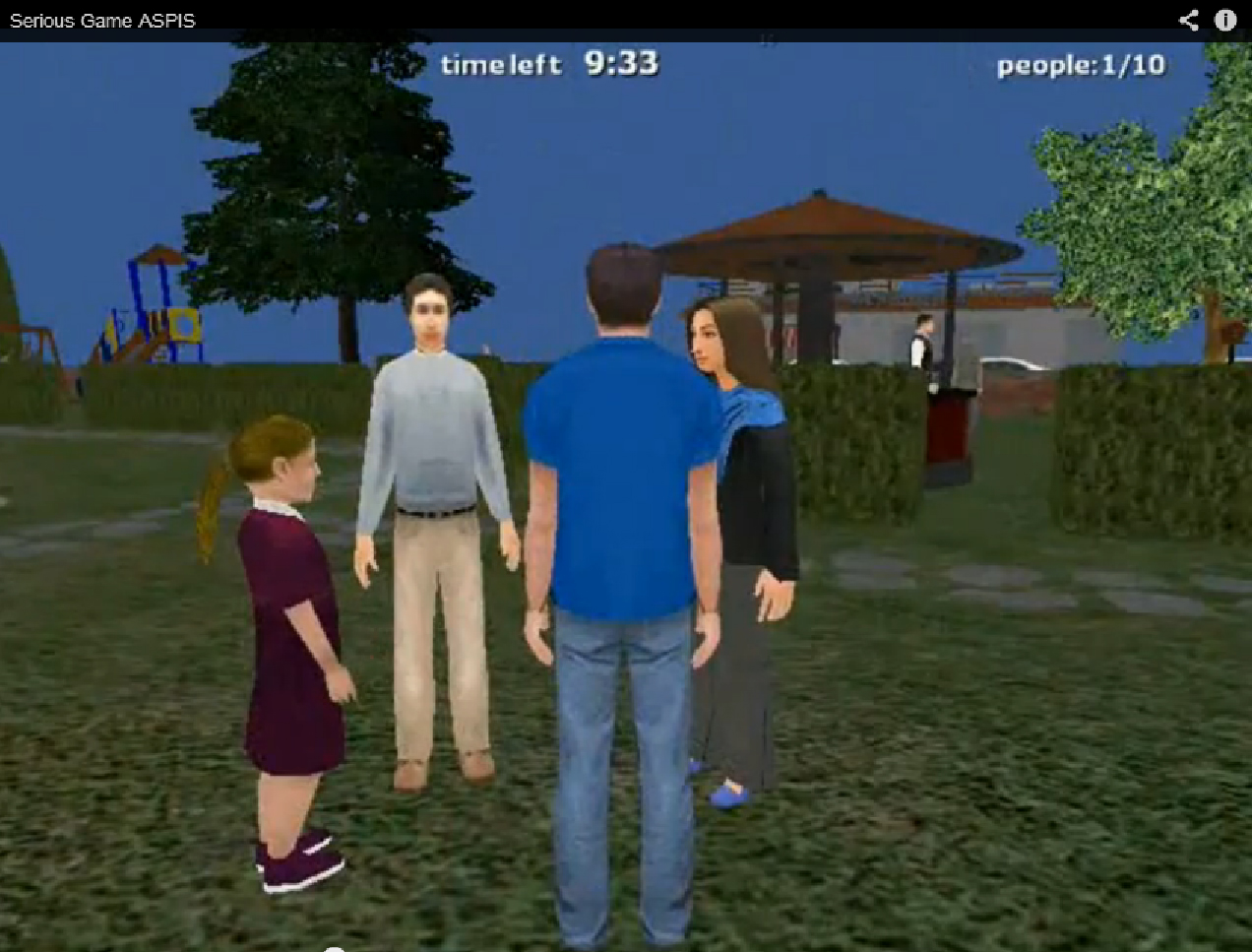 |
| View this email in a web browser |
 |
||
|
Involen Newsletter
Intergenerational Learning for Nature Conservation Volunteers
|
||
 |
||
|
ISSUE 1
|
JULY 2013 |
Read previous issues here |
 |
|
IN THE CURRENT ISSUE
|
| What is INVOLEN? | ||
| The project objectives, methodology and activities | ||
 |
||
| The first workshop of INVOLEN in France | ||
| Facilitors acquired bases of the three pillars of INVOLEN project | ||
 |
||
| ASPIS: The sustainability game! | ||
| An innovative project offering a game-based learning approach to environmental education | ||
 |
||
|
What is INVOLEN?
|
|
|
The project objectives, methodology and activities
INVOLEN is an innovative project promoting
intergenerational learning through game-based learning, targeting nature
conservation volunteers in 5 European countries (Italy, Greece, France, Hungary
and Slovenia). INVOLEN brings together two different age groups, adolescents
and senior citizens and encourages their participation in voluntary activities
for the protection and preservation of the European ecological heritage,
focusing on NATURA 2000 sites. Seniors and youth are challenged to work
together in groups and design their own interactive ICT games on nature
conservation. A wide dissemination campaign of the INVOLEN model is launched by
initiating school competitions leading to European awards in all participating
countries.
The objectives of the project include promoting volunteering for nature conservation, making adult education more attractive to all ages, enhancing the preservation of protected areas including NATURA 2000 sites, contributing to the cohesion of communities living inside or near protected areas by enhancing their awareness of the ecological value of their surroundings, bridging the generations’ gap by deriving benefits for young and old and by involving schools and the civil society and promoting the culture of active citizenship. For more information read here: http://www.involen.eu/en/ |
|
 |
|
Focus groups | |
| INVOLEN presented at the “Colline Livornesi Day” in Italy In Italy, young volunteers from the secondary school Teseo Tesei – Micali
branch (Livorno)-
with the teachers Anna Lucarelli and Monica Demi and some elders of
Livorno province take part at Involen as pilot group. The protected area is the Provincial Park of Monti
Livornesi located at the outskirts of Livorno city. On May 26th, in the
occasion of the 13th National Day of the Trails, the ʽColline Livornesi Dayʼ,
was organised by the associations involved in the project ʽOcchi sulle Collineʼ
(ʽEyes on Hillsʼ). During the morning, the local associations presented and discussed issues related to the valorization and conservation activities in the protected area, which is the Provincial Park of Monti Livornesi located at the outskirts of Livorno city. Among oral contributions, the INVOLEN project was presented since a common objective was found in all proposals. The project was welcome and appreciated by local associations who expressed their support. In the afternoon, many volunteers were actively involved in the clean out of the old wash Gabbro (Ricaldo spring): a dozen people equipped with gloves and tools removed brambles and vines to unearth the ancient artifacts. This action aimed to raise awareness and interest in the territory and the importance of recovery. INVOLEN could contribute to these purposes, getting the youth dynamism and creativity and elders experience and knowledge closer. Find more info here: http://www.wwflivorno.it/?q=node/4564 and http://www.occhisullecolline.it/index.php/progetto/40-finalita-del-progetto-ed-attivita/156-2013-05-26-16-59-37 | |
| Two generations, one protected area, one objective in France To launch the INVOLEN project in France, la ligue de
l’enseignement organized the first focus group in April, in BELZ France. Bringing together pupils, seniors and environmental experts,
this meeting allowed to present the protected area selected: Gâvre –Quiberon,
which is a natura 2000 site since 2001. Well-known for its birds, its fauna,
its sand dune, this area is a perfect place to set up the INVOLEN project. Local residents, youth, seniors, nature facilitators, experts: all were very enthusiastic to take part in the project. The environmental expert answered all questions about the area, trying to stress out the importance for its protection.But most of all, this first meeting allowed to present the whole INVOLEN project and create a group cohesion around one objective: create a learning game to help to protect the Gâvre-Quiberon site. A lot of questions were addressed as expected to the ICT expert on how to create a game, whether it is difficult, based on what technology etc.The workshop for project managers and facilitors in July in France allowed us to get familiar more with the project and get answers on the previous technological questions. The new challenge is set for October when all partners enter the pilot phase and actual implementation of the learning methodology discussed in France. | |
| Bringing together 2 generations for nature conservation in Greece The Hellenic
Ornithological Society organised under the supervision of PRISMA 2 focus group
meetings: the first on the 11th of April 2013 in a secondary school
at Gerakas and the second on the 15th of May 2013 in a Social Center
for the Elderly at Markopoulos, both close to the selected protected area of
Vravrona.
The protected area of Vravrona (Vravrona wetland), situated on the coast of Eastern Attica, in the Municipality of Markopoulo, was selected as it has a rich ecosystem, unique in Attica, which is although threatened by the human presence. At both meetings, the participants were given the projects’ brochure and communicational material about the protected area, plus the projects and profile of HOS. The focus group started with a brief project description focusing on the aims, objectives, activities and timeline of it. Participants were encouraged to comment on the experts’ of the protected area presentation and present their own relevant experience. Later, an expert who knows well the interactive ICT game platform presented it, adjusting its presentation to the different audience needs and knowledge. In both meetings the discussion completed with the needs of all participants (visitors, local people, experts, stakeholders) which were taken into consideration in order to finalize the learning methodology. Read more about the protected area of Vravrona here: http://www.ornithologiki.gr/page_in.php?tID=2353&sID=126 | |
| Securing wide support in Hungary to protect local Natura 2000 site The Hungarian
focus group meeting of INVOLEN was generously hosted in the local Moricz
Zsigmond elementary school in Györ. The meeting was corresponding with the
Hungarian Day of Birds and Trees on 10 May, which is a remarkable event
organised in the country since the early 1900s. Therefore the event was
integrated into the various other programmes aiming to increase the pupils
awareness about the biodiversity values and challenges the local Natura 2000
site is facing with.
The host school – as a recognised member of the eco-school network in Hungary - is a frontrunner of linking elementary education with environmental education. “We are glad to participate in INVOLEN project, because the project will hopefully bring practical benefits for our pupils. We are really interested for instance in using modern, ICT technology to present the natural values of our local protected areas for our visitors”, says Ms Andrea Kotrics, head-master of the school. In total, forty one kids participated so the selection of the best participants in the pilot test would be relatively easy. The local project partner, PAN Parks Foundation, managed to secure the support of the Hungarian Commissioner for Education, Mr. Lajos Aáry-Tamás, who will be attending at the international workshop. This workshop in Hungary next year will compare the results of the pilot tests in the various participating countries. “As a father of 4 children, I sincerely believe in the protection of our natural environment. This is our obligation for future generation. What I like the most in the concept of INVOLEN is the transfer of knowledge between generations. Learning never ends! Therefore I am glad of providing the support of my office for PAN Parks to implement INVOLEN in Hungary”, says Mr. Aáry-Tamás, the Hungarian Commissioner of Education. | |
| Voluntary activities on nature conservation in Slovenia In spring 2013 INVOLEN pilot group of young volunteers,
seniors and facilitators to be involved in project INVOLEN in Slovenia was formed
with a fruitful
meeting in Cerknica on the 12th of April. Eighteen participants were
present on the meeting, discussing the issues about the selected protected
area, volunteering, and the aim of our common cooperation, which is to bring
together different generations, to establish their cooperation and to develop
voluntary activities on nature conservation.
Lili Mahne, the project manager of INVOLEN, made an introduction, followed by Polona Zevnik, facilitator, who presented INVOLEN project with its planned activities. Later, the local protected area, ΠΕΡΙΟΧΗ, and its features were presented by local expert Valentin Schein who is working in public sector as a director of Notranjska regional park. His interesting presentation was followed by discussion about current needs of participants to become more competent in the field of nature conservation and ICT. At the end of the meeting the questionnaires were filed in order to recognise the participant’s needs, expectations and competences. The meeting lasted from 4 pm to 9 pm. In general, the project idea was very well accepted. Notranjska ecological center, Cerknica, has always been working in the field of rural development and lifelong learning with its various projects concerning environment. Through its work, the institution is growing its recognition in the local environment and countryside as well as on the international level. For more information, please contact Polona Zevnik, 0038640-165-554, [email protected] | |
The first workshop of INVOLEN in France | |
| Facilitors acquired bases of the three pillars of INVOLEN project On the 1st and 2nd of July, in Lorient,
France, the first workshop of INVOLEN has been held. Almost 20 persons from Italy,
Greece, France, Hungary and Slovenia spent two days together to learn
everything about the learning methodology and the ICT part.
The training meeting enabled the facilitators to acquire the bases of the three pillars of the INVOLEN project: intergenerational learning, discovery and conservation of a Natura 2000 area, new technology and more particular the ARIS game platform. For the first time, facilitators could exchange and discuss about intergenerational activities and how to create a group cohesion between youth and seniors. Moreover, the ICT expert explained everything about a story-telling mobile game, the ARIS platform, etc. Mixing theory and practice with field visits, together with the creation of their own game, facilitators have been able to understand all the technical and the educational part. Everybody worked hard during the workshop, but those two-day training meeting also allowed partners to discover France and its specialties: food, landscapes, beach etc. But more than that, this workshop has created a real working group in the INVOLEN project, allowing everyone to know each other! | |
ASPIS: The sustainability game! | |
| An innovative project offering a game-based learning approach to environmental education “ASPIS - Auditing the
sustainability of public spaces” was an innovative project offering a
game-based learning approach to environmental education. The focus of the ASPIS
learning game is the sustainability of open public spaces in the city.
We‘ve interviewed
Marianna Tsemberlidou, environmental education advisor at the 3rd
Directory of Secondary Education in Athens, Greece who was a partner of the
ASPIS project.
What was ASPIS? ASPIS was a 3-year European project, running from 2009 to 2012 and co-funded by the Lifelong Learning Programme (Transversal Programmes – Key Activity 3 ICT – Multilateral Projects). What was the aim of ASPIS and how many countries were involved? ASPIS aimed at promoting learning for public participation in planning and raising awareness on the sustainability of open public spaces among citizens, professionals (architects-planners) and students (University and secondary education). It involved 7 European countries and 9 organisations, including Universities, planning and IT consultancies, research institutes and local authorities. What was the most innovative feature of ASPIS project? The project introduced a Game-based Learning (GBL) methodology, complemented with other interactive communication/internet-based tools, aiming to encourage “learning by-doing” through simulation, negotiation and role-playing. The ASPIS game proved in practice to be a powerful educational tool, especially for high school students, facilitating the understanding of the complex concept of sustainability and encouraging the students to become involved in active citizenship. What are the learning outcomes of the project? The learning outcomes of ASPIS address professional architects and planners as well as the general public, and are also designed for introduction in school and university curricula, making learning more attractive and relevant to real life situations. You can see the video of the sustainability game below: www.youtube.com/watch?v=S9EA7whj9gg To play the game click: aspisgame.i-maginary.com/index.html For more information about the ASPIS project, please visit: www.aspis-learn.eu | |
|
CONTRIBUTORS
|
||
|
Content Curator Katerina Giosma |
Editors Francesca Ugolini, Fouli Papageorgiou, Elise Gosselin, Zoltan Kun, Lili Mahne, Veroniki Korakidou, Polona Zevnik |
Photographs The Involen Partnership |
 |
||
|
OPPORTUNITIES TO PARTICIPATE
|
||
| Learn how YOU can take part in! |
For more information click here |
|
 |
||
|
CONTACT
|
||
http://www.involen.eu  With the support of the Lifelong Learning Programme of the European Union |
||
 |
||
